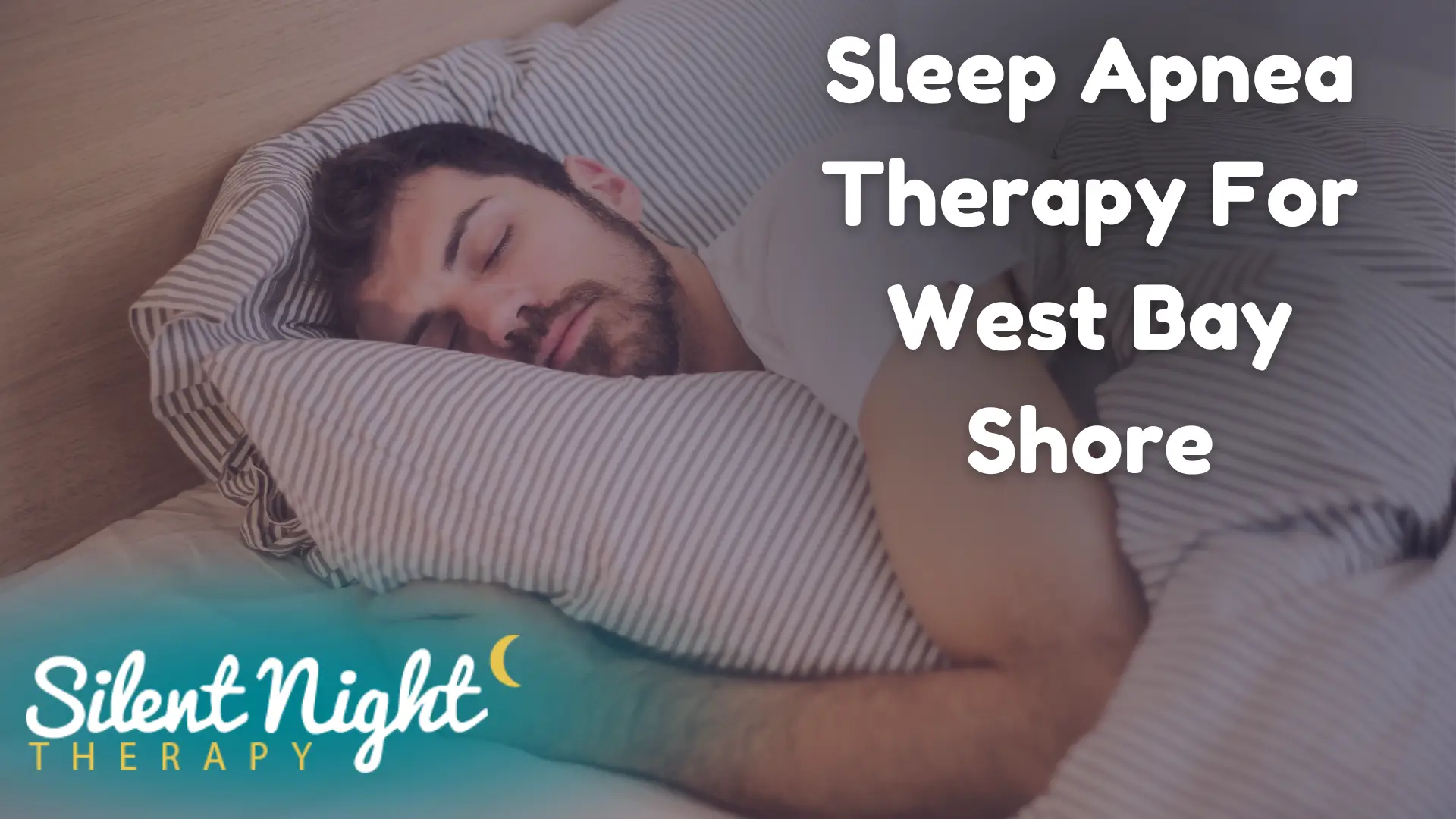
Do you snore loudly when you sleep? Do you wake up several times during the night and experience choking sensations? Do you normally wake up with a dry or sore throat? Are you tired throughout the day or experience mood changes and problems with concentration, remembering things, or other issues?
If so, you may be suffering from a serious sleep disorder called sleep apnea. Essentially, sleep apnea occurs because of interruptions to your breathing while you sleep. You can stop breathing dozens of times throughout the course of the night, and the condition can starve your brain and internal organs of much-needed oxygen. Sleep apnea can be a very dangerous condition that can have serious effects on your overall health and well-being.
This is why it is so important for you to receive an accurate diagnosis of your condition from an experienced sleep disorder professional.

Here at Silent Night Therapy, our founder, Dr. Clifford Brown, has decades of experience dealing with sleep apnea and other sleep disorders, and he leads a team of highly experienced sleep disorder professionals who are here to help you receive the correct diagnosis for your condition and offer treatment solutions.
You can contact the West Bay Shore sleep specialists of Silent Night Therapy at (631) 983-2463 to schedule a consultation, or you can complete the online contact form on our website to schedule your complimentary consultation.
Dynamic Toc TestWhat Is Sleep Apnea?
The Mayo Clinic defines sleep apnea as “a potentially serious sleep disorder in which breathing repeatedly stops and starts.” If you have sleep apnea, your body automatically jolts you awake when your breathing stops throughout the night, and the process can happen many times during your sleep. People with this condition usually feel tired throughout the day because they are not getting the full, uninterrupted, and restorative sleep they need.
Read more: What Is Sleep Apnea
Physicians classify sleep apnea into the following categories:
- Obstructive – This is one of the most common forms and occurs when your throat muscles relax to the point that they close off your air passages.
- Central – This form occurs because the brain does not send the proper signals to the muscles used to control breathing.
- Complex sleep apnea syndrome – Sometimes, people can suffer from both central and obstructive sleep apnea. This form is also referred to as treatment-emergent central sleep apnea.
Most of the symptoms of obstructive and central sleep apnea are the same. A person suffering from either condition or a combination of the two can experience a wide range of symptoms, including any of the following:
- Snoring loudly
- Repeated wakening
- Intermittent breathing cessation or gasping for air during sleep
- Trouble staying asleep or falling back to sleep after waking
- Dry mouth and sore throat
- Excessive drowsiness throughout the day and problems with concentration along with irritability
Patients can also experience other issues, such as headaches, due to the body not getting enough sleep or the brain and organs not getting enough oxygen. The condition can adversely affect all areas of your life, and you should visit a doctor who has experience with sleep disorders for help.
The licensed physicians and sleep disorder professionals of Silent Night Therapy have decades of experience working with patients suffering from sleep apnea and other conditions, and we have served the West Bay Shore area for nearly 30 years.
What Causes Sleep Apnea?
 Obstructive sleep apnea occurs when your throat muscles relax while you sleep and block off or narrow your airway. When this happens, your body is not getting the oxygen it needs, and your brain sends signals to rouse you from your sleep. Most of the time, the process happens so quickly you are not consciously aware of it, but it still affects your ability to get uninterrupted sleep during the night, and it can lead to more serious health complications.
Obstructive sleep apnea occurs when your throat muscles relax while you sleep and block off or narrow your airway. When this happens, your body is not getting the oxygen it needs, and your brain sends signals to rouse you from your sleep. Most of the time, the process happens so quickly you are not consciously aware of it, but it still affects your ability to get uninterrupted sleep during the night, and it can lead to more serious health complications.
Conversely, central sleep apnea occurs due to a patient’s brain not sending the signals to the muscles that control your breathing. Essentially, your body makes no effort to breathe, and you awake with shortness of breath and other possible symptoms. You may also have trouble falling asleep again afterward.
Several factors also contribute to sleep apnea, and they are as follows:
- Obesity – people who are overweight have a much higher chance of developing sleep apnea.
- Narrow throat – some people naturally have narrow throats that can lead to the condition, and swollen tonsils or other glands can also contribute.
- Age and gender – older people and males typically experience sleep apnea at higher rates than others.
- Use of medications and substances – sedatives, tranquilizers, alcohol, certain illegal drugs, and even over-the-counter medications can work to relax your throat muscles to the point that they cause sleep apnea.
- Smoking tobacco – people who smoke are more likely to develop sleep apnea than non-smokers.
- Medical conditions – certain medical conditions, such as congestive heart failure, Parkinson’s disease, and others, can lead to sleep apnea.
People who suffer from sleep apnea are four times more likely to suffer a stroke, and they have an increased risk of developing heart disease or having a heart attack. The condition can also lead to cardiovascular problems as well as chronic depression, anxiety, and irritability.
Get the Treatment You Need
If you suffer from sleep apnea, you likely experience excessive tiredness throughout the day, along with other health issues and disruptions to your personal and professional lives.
Dr. Brown and our sleep apnea professionals at Silent Night Therapy will work with you to diagnose your condition and come up with a plan for treatment. We will begin by conducting a sleep study to diagnose your condition so that we can devise the best solution for you.
At our office, we treat all of our patients like members of the family, and you can count on us to do all we can to help you get the restful and restorative sleep you need every night. To begin, you can call Silent Night Therapy at (631) 983-2463, or you can fill out our online contact form to schedule an appointment for your complimentary consultation.